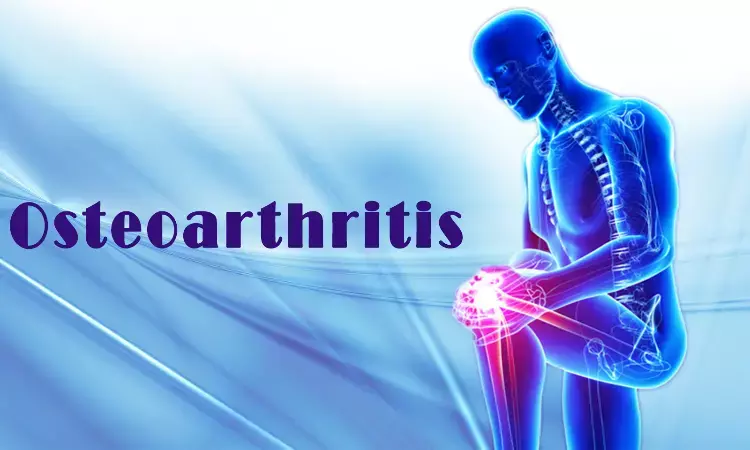- Home
- Medical news & Guidelines
- Anesthesiology
- Cardiology and CTVS
- Critical Care
- Dentistry
- Dermatology
- Diabetes and Endocrinology
- ENT
- Gastroenterology
- Medicine
- Nephrology
- Neurology
- Obstretics-Gynaecology
- Oncology
- Ophthalmology
- Orthopaedics
- Pediatrics-Neonatology
- Psychiatry
- Pulmonology
- Radiology
- Surgery
- Urology
- Laboratory Medicine
- Diet
- Nursing
- Paramedical
- Physiotherapy
- Health news
- Fact Check
- Bone Health Fact Check
- Brain Health Fact Check
- Cancer Related Fact Check
- Child Care Fact Check
- Dental and oral health fact check
- Diabetes and metabolic health fact check
- Diet and Nutrition Fact Check
- Eye and ENT Care Fact Check
- Fitness fact check
- Gut health fact check
- Heart health fact check
- Kidney health fact check
- Medical education fact check
- Men's health fact check
- Respiratory fact check
- Skin and hair care fact check
- Vaccine and Immunization fact check
- Women's health fact check
- AYUSH
- State News
- Andaman and Nicobar Islands
- Andhra Pradesh
- Arunachal Pradesh
- Assam
- Bihar
- Chandigarh
- Chattisgarh
- Dadra and Nagar Haveli
- Daman and Diu
- Delhi
- Goa
- Gujarat
- Haryana
- Himachal Pradesh
- Jammu & Kashmir
- Jharkhand
- Karnataka
- Kerala
- Ladakh
- Lakshadweep
- Madhya Pradesh
- Maharashtra
- Manipur
- Meghalaya
- Mizoram
- Nagaland
- Odisha
- Puducherry
- Punjab
- Rajasthan
- Sikkim
- Tamil Nadu
- Telangana
- Tripura
- Uttar Pradesh
- Uttrakhand
- West Bengal
- Medical Education
- Industry
Single injection of PRP improves pain, mobility, and quality of life in osteoarthritis: Study

The study is the first to report the efficacy of LR-PRP on objective functional outcomes using wearable sensor technology and validated patient-reported outcomes.
USA: A single injection of leukocyte-rich/platelet-rich plasma (PRP) significantly improved pain, mobility, and quality of life in osteoarthritis patients, according to a study by researchers at Baylor College of Medicine.
The study, published in the journal Regenerative Medicine, combined wearable technology and patient-reported outcomes for assessing the efficacy of PRP treatment in osteoarthritis. The researchers support the use of this combined approach for evaluating this and other emerging biological therapies for musculoskeletal disorders in larger clinical trials.
"OA is a leading cause of disabilities, affecting nearly 52 million Americans," said first and corresponding author Dr. Prathap Jayaram, director of regenerative sports medicine and assistant professor in the Department of Physical Medicine and Rehabilitation and Orthopedic Surgery at Baylor. "It has been estimated that more than 80% of individuals older than 55 years have some X-ray-based evidence of the disease."
OA develops when the smooth cushion between bones, the cartilage, breaks down. Progressively, joints become painful, swollen, and hard to move, Jayaram explained. Currently, there are no validated therapies that delay disease progression. The current standard of care is limited to the alleviation of symptoms with corticosteroids.
"However, although steroids seem to be helpful in the short term for pain, emerging evidence has associated steroid long-term use in OA with loss of cartilage," Jayaram said. "As OA is a whole joint disease, there is a need for developing novel therapeutic strategies that ultimately prevent and/or delay disease progression while improving functional outcomes. PRP is emerging as one of the promising candidates to treat OA that are currently being used in clinical practice."
Combining wearable technology and patient assessment to evaluate the treatment
One challenge of previous studies assessing PRP therapies in OA is that treatment evaluation is based on patient-reported outcomes that subjectively assess pain or aspects of joint function, such as the time up-and-go (TUG), how quick a person gets up from a chair.
In this study, Jayaram and colleagues incorporated wearable technology to objectively assess functional outcomes such as TUG, in addition to patient-reported outcomes to comprehensively evaluate the efficacy of PRP in knee OA (KOA).
The prospective pilot study included 12 patients diagnosed with KOA. Each patient received one ultrasound-guided injection of PRP and function and pain were evaluate six weeks later.
PRP is prepared from the patient's own blood by removing the red blood cells and enriching the concentration of platelets. PRP also contains white blood cells, or leukocytes. PRPs are formulated either leucocyte-rich (LR) or leukocyte-poor. A preclinical study by Jayaram and his colleagues had previously shown that LR-PRP had potential disease-modifying effects that correlated with functional outcomes.
"In the current study, we found that a single injection of LR-PRP into the knee does significantly improve functional mobility, pain and quality of life at six weeks," Jayaram said. "To our knowledge, our study is the first to report the efficacy of LR-PRP on objective functional outcomes using wearable sensor technology and validated patient-reported outcomes. Our findings provide the basis to conduct larger randomized clinical trials of PRP."
Reference:
The study titled, "Novel assessment of leukocyte-rich platelet rich plasma on functional and patient reported outcomes in knee osteoarthritis: a pilot study," is published in the journal Regenerative Medicine.
DOI: https://www.futuremedicine.com/doi/10.2217/rme-2021-0032
Hina Zahid Joined Medical Dialogue in 2017 with a passion to work as a Reporter. She coordinates with various national and international journals and association and covers all the stories related to Medical guidelines, Medical Journals, rare medical surgeries as well as all the updates in the medical field. Email: editorial@medicaldialogues.in. Contact no. 011-43720751
Dr Kamal Kant Kohli-MBBS, DTCD- a chest specialist with more than 30 years of practice and a flair for writing clinical articles, Dr Kamal Kant Kohli joined Medical Dialogues as a Chief Editor of Medical News. Besides writing articles, as an editor, he proofreads and verifies all the medical content published on Medical Dialogues including those coming from journals, studies,medical conferences,guidelines etc. Email: drkohli@medicaldialogues.in. Contact no. 011-43720751


